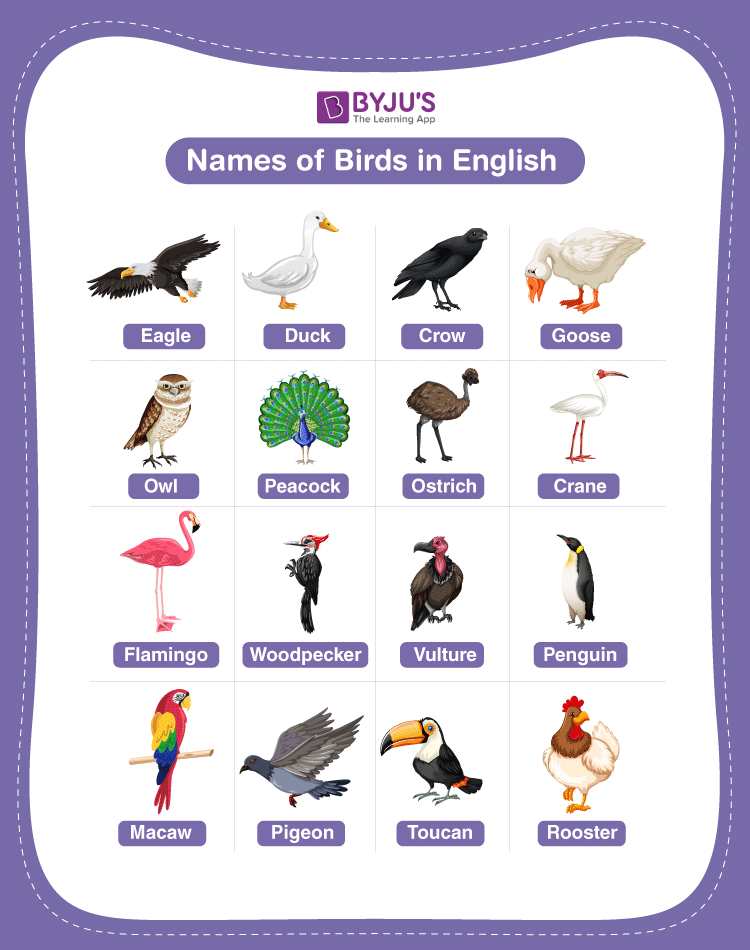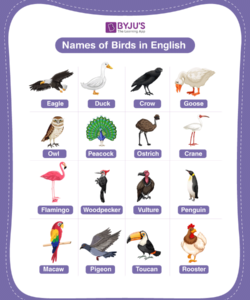Birds, with their melodious songs and vibrant plumage, have always captivated human imagination. Their names, often bestowed upon them for centuries, hold intriguing etymological tales and cultural significance. In this comprehensive article, we delve into the world of bird names and their meanings, unveiling the stories behind these avian appellations.
Bird names can vary widely, influenced by factors such as their physical characteristics, behaviors, habitats, and cultural symbolism. Some names, like “eagle” and “sparrow,” are rooted in ancient languages, while others, like “hummingbird” and “ostrich,” reflect their distinct traits.
Common Bird Names and Their Meanings
Robin: This beloved bird’s name originated from the medieval French word “robinet,” meaning “little Robert.” Robins were often associated with chivalry and loyalty.
Bluebird: The vibrant blue coloration of this bird inspired its name. The term “blue” has Germanic origins, referring to the bright hue that adorns its plumage.

Cardinal: The name “cardinal” alludes to the regal crimson plumage of male birds, reminiscent of the attire worn by Roman Catholic cardinals.
Goldfinch: This bird’s name is a testament to its golden-tinged plumage. The term “finch” stems from the Old English word “finc,” denoting a small, seed-eating bird.
Cultural Symbolism in Bird Names
Bird names often carry cultural significance, reflecting their perceived qualities or symbolic meanings. For instance, the eagle, with its soaring flight and majestic presence, is revered as a symbol of strength, freedom, and leadership in many cultures.
The dove, known for its gentle nature, has long been associated with peace and harmony. In Christian symbolism, it represents the Holy Spirit.
The crow, often depicted as a harbinger of misfortune or death in Western cultures, is revered in certain Eastern cultures as a symbol of wisdom and longevity.
The phoenix, a mythical bird found in ancient Greek and Egyptian legends, represents resurrection and renewal.
The hummingbird, with its tiny size and lightning-fast wings, symbolizes joy, resilience, and the wonder of life.
Conclusion
Bird names are a fascinating tapestry of etymology and cultural symbolism. They not only identify different avian species but also provide glimpses into the human understanding and appreciation of these feathered creatures.
Whether it’s the soaring eagle or the cheerful robin, the names we give to birds reflect our deep connection to the natural world and the interconnectedness of all living things.
FAQ
What is the meaning behind the name “sparrow”?
The name “sparrow” originates from the Old English word “sperewa,” which referred to a small, brown-headed bird.
Why are owls named as such?
The name “owl” is believed to derive from the Proto-Indo-European “ghu,” an onomatopoeic word imitating the bird’s call.
What is the significance of the name “nightingale”?
The name “nightingale” comes from the Old English “nihtgale,” which means “night singer.” These birds are renowned for their enchanting nocturnal melodies.
What is the etymology of the name “hawk”?
The name “hawk” has Germanic origins, derived from the word “hafoc,” meaning “to seize” or “to catch.”
What does the name “flamigo” (flamingo) mean?
The name “flamingo” comes from the Spanish word “flamenco,” which is believed to have originated from the Latin “flamma,” meaning “flame,” due to the bird’s reddish-pink plumage.



